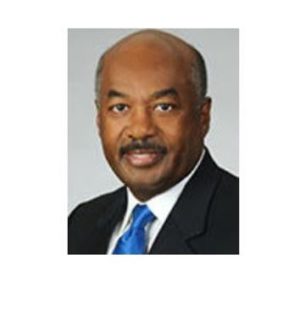
With musicFIRST hosting a press conference Monday to unveil its next step to come after radio to pay to play music, Davis Broadcasting CEO Greg Davis has written a letter to members of Congress asking them to reject any attempt to hit radio with another fee. Here’s why…
Davis says any new legislation, such as the American Music Fairness Act,, which would require radio stations to pay a performance royalty every time they play a song, would “inflict significant harm on my stations and the thousands of other local radio stations that serve America’s communities every day.”
Davis says while the AMFA would only charge smaller stations $500 per year, this is not a nominal fee as the supporters of the legislation suggest. “Nothing could be further from the truth. The AMFA contains no provision capping these reduced fees in perpetuity. From my experience in operating radio stations, I know that costs rarely stay the same or decrease over time. Instituting a performance fee – no matter how nominal at first – would most certainly lead to ever-rising fees over time, regardless of a broadcaster’s size.”
Davis also says a performance royalty could “also put a lid on success and taper small broadcasters’ dreams of growing their businesses.”
musicFIRST and supporters of the AMFA in Congress have really been targeting radio’s larger companies such as: iHeartMedia, Audacy, Cumulus, Townsquare and others they say are not paying their fair share to artists.
The radio industry has always touted a symbiotic relationship with artists stating that playing their music is very beneficial to them due to radio’s audience size and close relationship with listeners.
Read Davis’ letter HERE.






The music industry wants radio to operate under the same rules as digital media. That’s what they see as “fair.” The fact is that radio DOESN’T exist under those same rules. Digital media is digital, and radio is required by law to remain analog. The reason why Congress approved the royalty for digital media, such as satellite and streaming, was because it is digital. That is the only reason that royalty exists. The concern was that consumers could download CD quality music from digital media, and not purchase music from labels. As we see, that’s what happened. But broadcast radio is not part of that system. The music industry says it’s not fair, but the rules under which broadcast radio operate aren’t fair either. The US is the only country in the world that has payola laws, forbidding money to exchange hands between broadcasting and the music industry. These payola laws do not apply to digital media. There are other rules and laws that apply only to broadcast that don’t apply to digital. The music industry wants fairness, but fairness can’t exist as long as broadcasting operates at a disadvantage with digital media. The fact is that broadcast radio pays the digital royalty to SoundExchange at full price for its streaming stations. The music industry should be satisfied with that. Radio plays by the rules just like everyone else.
Consumers of music need a reason to buy their own copies, thus supporting the artists beyond buying tickets for their shows, which tends to be the biggest revenue producers for many of them. In the old days of “Rock and Roll” radio the DJ’s would talk over the intros and outros of the songs they played, thus making it difficult for the listener to acquire a pristine “water mark free” copy of the music at little cost.
With digital recording technology advancing to the point where everyone owns a smart phone, tablet or laptop capable of superior performance than many analog studios of the past, plus so many group owned radio stations providing juke box style entertainment, it’s a no brainer to build a free music library or your own “tape mix” as was the case in the cassette recorder era sans tape hiss.
We’re walking a tightrope between radio’s mission of artist exposure to the buying public and today’s ability to provide better quality audio and not compete with music sales. That’s the conundrum that must be solved if we are to preserve radio’s place without taxing it to death.
In 1941 (I believe that was the year) radio stations by an large quit playing popular music in a dispute with ASCAP. That lasted several months until ASCAP caved. “Race music” and country music gained a much wider audience as a result as much of those categories of music were not covered at the time. Obviously internet sources would have to join but they might find that they need their music publicized even today.